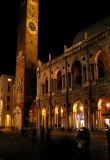 ESCITY is the acronym of Europe, Science and the City: promoting scientific culture at local level, a two-year project (2006-2007) aimed at creating the core of a network for the exchange of information and best practices in the area of promoting scientific culture.
ESCITY is the acronym of Europe, Science and the City: promoting scientific culture at local level, a two-year project (2006-2007) aimed at creating the core of a network for the exchange of information and best practices in the area of promoting scientific culture.
Two particular features characterize it: firstly, ESCITY focuses on local and regional action; secondly, it emphasises strategies that situate the promotion of scientific culture under the umbrella of cultural policies.
The founder members of this network – funded by the European Commission – are representatives of local and regional administrations and social researchers from different European cities. Among them there are Observa, representing Italy, Wissenschaftszentrum Wien (Austria), Fundació Barcelona Media Universitat Pompeu Fabra (Spain), Ciência Viva (Portugal) and the local government of Tromso(Norway).
Main objectives of the ESCITY project refer to three large areas:
- the launch of a forum;
- the organization of an international meeting in Barcelona;
- a lobbying action promoted by the Excity community.
1) First of all, ESCITY will provide a forum for exchange and debate on scientific culture at European level in order to create the core of a Europe-wide community of social researchers and members of governmental staff involved in the promotion of scientific culture at regional and local level. ESCITY proposes offering the conditions to bring about the necessary interrelation between the many actors that play a part in promoting culture and science—politicians, civil servants, experts, professionals, academics, etc. This contact is, without doubt, an essential condition for joint initiatives to be forged and for collaborations to arise beyond this two-year project.
The exchange of information, experience and good practices encourages governmental co-operation, the Knowledge transfer from social research to government and a clear and accurate awareness of the state of promotion of scientific cultural at local level in Europe. One forum’s aim will be a systematic search of governmental initiatives and programs already developed across Europe, and the establishment of a set of parameters that allow to compare those actions, taking into account national contexts.
In accordance with the priorities established by the Commission, the project will also pay special attention to actions aimed at stimulating the interest of young people in science and to the role of women in scientific development. In this process of search and analysis, contact will also be established with other European networks of cities in order to establish synergies with them and to try to find common areas. A specific website will host this community’s activities: www.escity.org.
One of the first benefits of creating this platform for spreading knowledge on line is that it is relatively quick and easy to spread the word about locally implemented innovative and interesting actions. Furthermore, the simple fact of being up to date regarding what is going on in our environment is, in and of itself, a source of ideas (as well as help, strategies and instruments) and contributes to prevent “reinventing the wheel”, a common enough phenomenon in projects designed and developed in isolation and having no contact with similar initiatives.
2) Secondly, together with the Internet portal, the ESCITY community will organize an international meeting that will take place in Barcelona in 2007, the year Barcelona has declared “Year of Science”. Relevant actors in designing and implementing cultural policies across Europe will gather in order to discuss the inclusion of the promotion of scientific culture in local cultural policies, as well as new formats for doing so.
The meeting, which will most likely take the form of a workshop, will revolve around the main results of the benchmarking study and its objective will be the drafting of a conclusions document.
Analysis of the results will provide indications that allow us to identify areas for improvement and draw up suggestions. It will also provide practical information that could be of use to governments carrying out actions promoting scientific culture (or that are thinking of doing so in the future).
3) Lastly, this community of researchers and members of government institutions working on the promotion of scientific culture was born of a clear and stated interest in acting as a pressure group, a lobby, to extend best practices of government in this field.
As a first step, this lobbying action will take the form of a publication to be distributed to European governments. It will have the structure of an easy-to-use guide and its contents will be drawn up using the conclusions of the Barcelona meeting, the most relevant aspects of the benchmarking study and a set of instruments and recommendations for local and regional governments. Such a tool will be available on the project’s website, in order to be disseminate to a wide public.
Observa festival “Science and Society meet in Architecture 2007” was promoted in the framework of Escity project.







